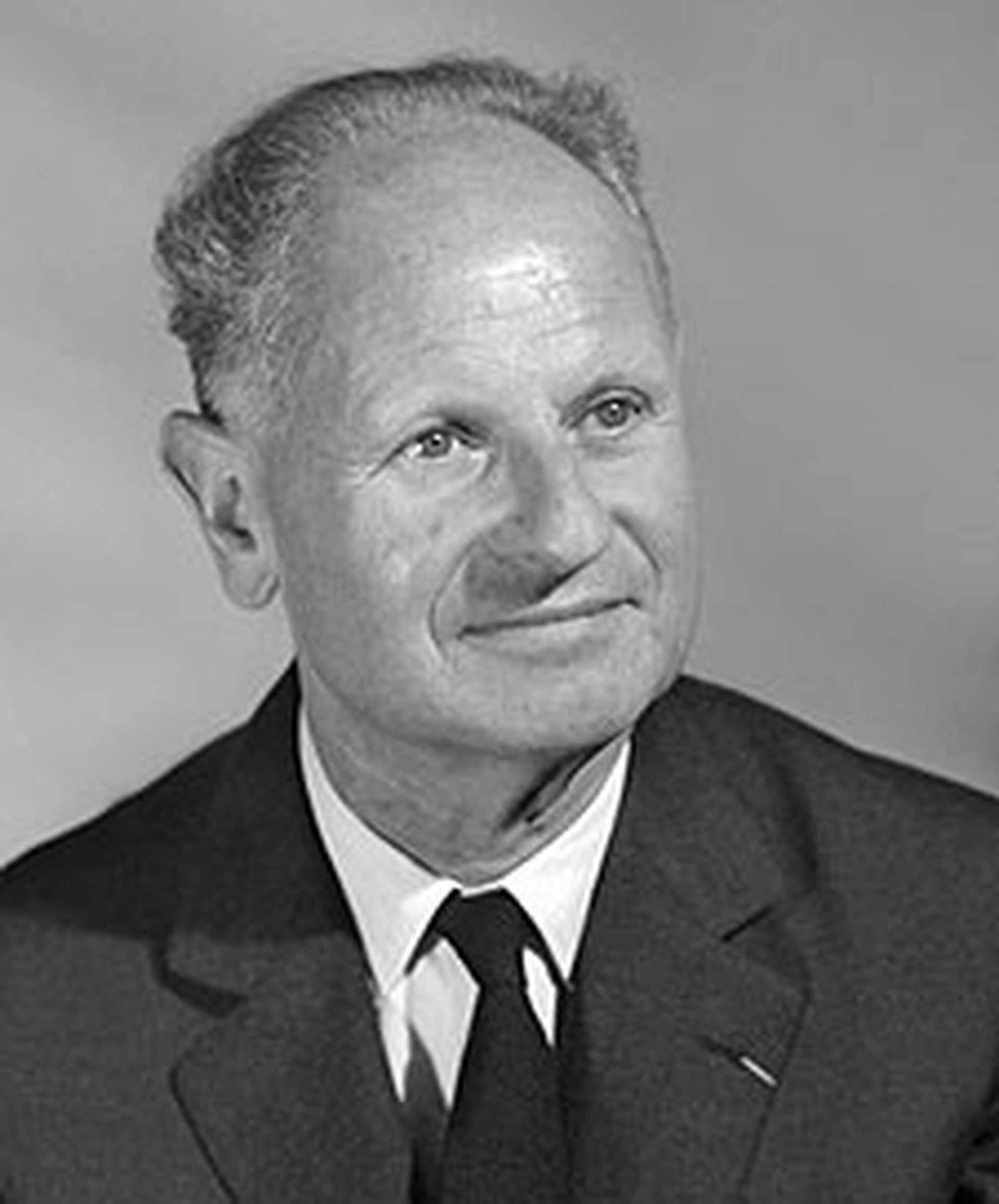Manuel Rosenthal
Manuel Rosenthal was born on 18 June 1904 in Paris (France). He learned the violin from the age of 6 and entered the Paris conservatory in 1920. But he left the conservatory after only a year and continued his studies privately, first violin under Jules Boucherit. To earn a living in these times Manuel Rosenthal performed in theatres, cinemas and cafes in various bands. Through his diverse activities he became acquainted with Darius Milhaud and Arthur Honegger. And with their help first compositions of Manuel Rosenthal were performed and received critical acclaim. These incidents surely led to the fact that Manuel Rosenthal could continue his studies under Jean Hure (counterpoint and fugue) and in 1924 under Maurice Ravel (composition), as his only third and last student (after Maurice Delage and Ralph Vaughan Williams).
After his studies Manuel Rosenthal started both a career as a composer and conductor. In 1928 he won the Prix Blumenthal for his music and his orchestral composition Jeanne d'Arc, premiered in 1936, was a great success. In 1938 Manuel Rosenthal arranged and orchestrated some of the music by Jacques Offenbach for a performance of the Ballet-Russe de Monte Carlo. This arrangement titled "Gaite Parisienne" became an even bigger, a world wide success.
On the other hand Manuel Rosenthal became assistant conductor of the Orchestre National de France in 1934. And in 1937 Serge Koussevitzky invited him to fulfill the same position at the Boston Symphony Orchestra.
World War II then interrupted both the composing and conducting career of Manuel Rosenthal. He was drafted for military service and was taken prisoner by the Germans. After the war Manuel Rosenthal first continued his career as a conductor. From 1944 to 1947 he was principal conductor of the Orchestre National de la Radiodiffusion Francaise and made his mark as a champion of contemporary music. Then he became conductor of the St. Louis Symphony Orchestra and later the Seattle Symphony. In 1951 Manuel Rosenthal quit his position as the principal conductor of the Seattle Symphony and continued to work only as a guest conductor for renowned orchestras world wide. In the next decade he returned to his work as a composer, but these works failed to have the success of his pre-war compositions. So as a result Manuel Rosenthal virtually stopped composing (there are quasi no compositions after 1961) and became professor for conducting at the Paris conservatory in 1962. He taught at the Paris conservatory until 1974. From 1964 to 1967 Manuel Rosenthal also was the principal conductor of the Orchestre Symphonique de Liege. In his last days Manuel Rosenthal only worked as a guest conductor.
Manuel Rosenthal died on 5 June 2003 in Paris (France).
The work catalogue of the composer Manuel Rosenthal contains several stage works (ballets, operas bouffes, operas comiques or drames lyriques), orchestral music as well as vocal and choral works. He only composed very few chamber music compositions.
Trois petites "music"
In my possession is the autograph manuscript of the "Trois petites 'music' pour piano a deux mains" by Manuel Rosenthal. According to my manuscript this small piano composition was composed between 1 and 3 March 1923. It is therefore one of the earliest compositions by Manuel Rosenthal and dates from a time before he had lessons with Jean Hure or Maurice Ravel. The work consists of the three "musics" 1. Pastorale, 2. Romance and 3. Rag-Music. Each part is dedicated to a different person: The Pastorale to Madame Marcon, the Romance to C. Frantz and the Rag-Music to Maurice Soret. The complete work is dedicated to Darius Milhaud on the title page. A previous inscription (likely to someone else) was scratched away.
